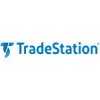Economists are closely watching as consumer spending may have slowed down in August, following a stronger-than-expected performance in July.
According to estimates from FactSet, retail sales are projected to have increased by only 0.1% in August compared to the previous month. This marks a significant deceleration from July’s growth of 0.7%.
The deceleration in retail sales growth is not a recent phenomenon, as D.A. Davidson analyst Michael Baker points out. Retail sales have been steadily slowing down in year-over-year growth for several months now. In January, retail sales were 6.4% higher than the same period in the previous year. However, by July, this figure dropped to 3.2%.
Baker emphasizes that this trend of slowing growth has been evident for some time.
The significant increase in retail sales seen in July can be attributed to midsummer sales events and Fourth of July holiday promotions. Unfortunately, August had fewer major shopping events that could entice consumers to spend additional money.
In addition to the lack of attractive sales events, consumers are grappling with persistent sticky inflation, which is further amplified by the recent rise in unemployment rates. The consumer price index, which measures inflation, recorded a 3.7% increase in August compared to the previous year. This is higher than July’s inflation rate of 3.2%, driven primarily by a spike in gasoline prices.
Both consumer sentiment and consumer confidence, which are key indicators of economic well-being, took a hit in August. This downturn reversed the gains made earlier in the summer.
Despite these challenges, there is still a possibility that consumers will disregard concerns and surprise with stronger-than-expected spending. Approximately 40% of Americans still believe that jobs are plentiful, as indicated by the Conference Board’s monthly consumer confidence survey.
As economists monitor the situation closely, it remains uncertain whether consumer spending will regain momentum or continue to slow down in the coming months.
Walmart CEO Optimistic About U.S. Consumers
In a recent interview at a Goldman Sachs investor conference, Walmart CEO Doug McMillon expressed optimism about the state of the U.S. consumer market. He revealed that America’s largest retailer had observed strong back-to-school sales, leading him to feel “pretty good” about the current situation.
A Jefferies analyst team corroborated McMillon’s sentiment, stating in a client note that their proprietary consumer health index indicated signs of improvement. They highlighted an increase in labor participation and a slowdown in credit card balance growth compared to earlier this year.
Despite these positive indicators, the analysts acknowledged that consumers still face challenges that could impact spending. Factors such as higher energy prices and the resumption of student loan payments may have an influence on consumer behavior.
Looking ahead to the holiday season, consulting firm Deloitte released its yearly holiday sales forecast. The forecast predicts a growth of 3.5% to 4.6% in retail sales for this year’s holiday season, compared to a growth of 7.6% during the same period in 2022.
Deloitte’s U.S. economic forecaster, Daniel Bachman, attributed the slower pace of sales growth to lower inflation. Last year, higher prices played a significant role in driving retail sales, but this year’s forecast takes into account the inflation-adjusted figures. Bachman also noted that the retail sales forecast considers the decreasing pool of pandemic-era savings, which will likely weigh on overall sales growth.
While there are still uncertainties surrounding the consumer market, McMillon and industry experts remain cautiously optimistic about the upcoming holiday season.








Leave a Reply